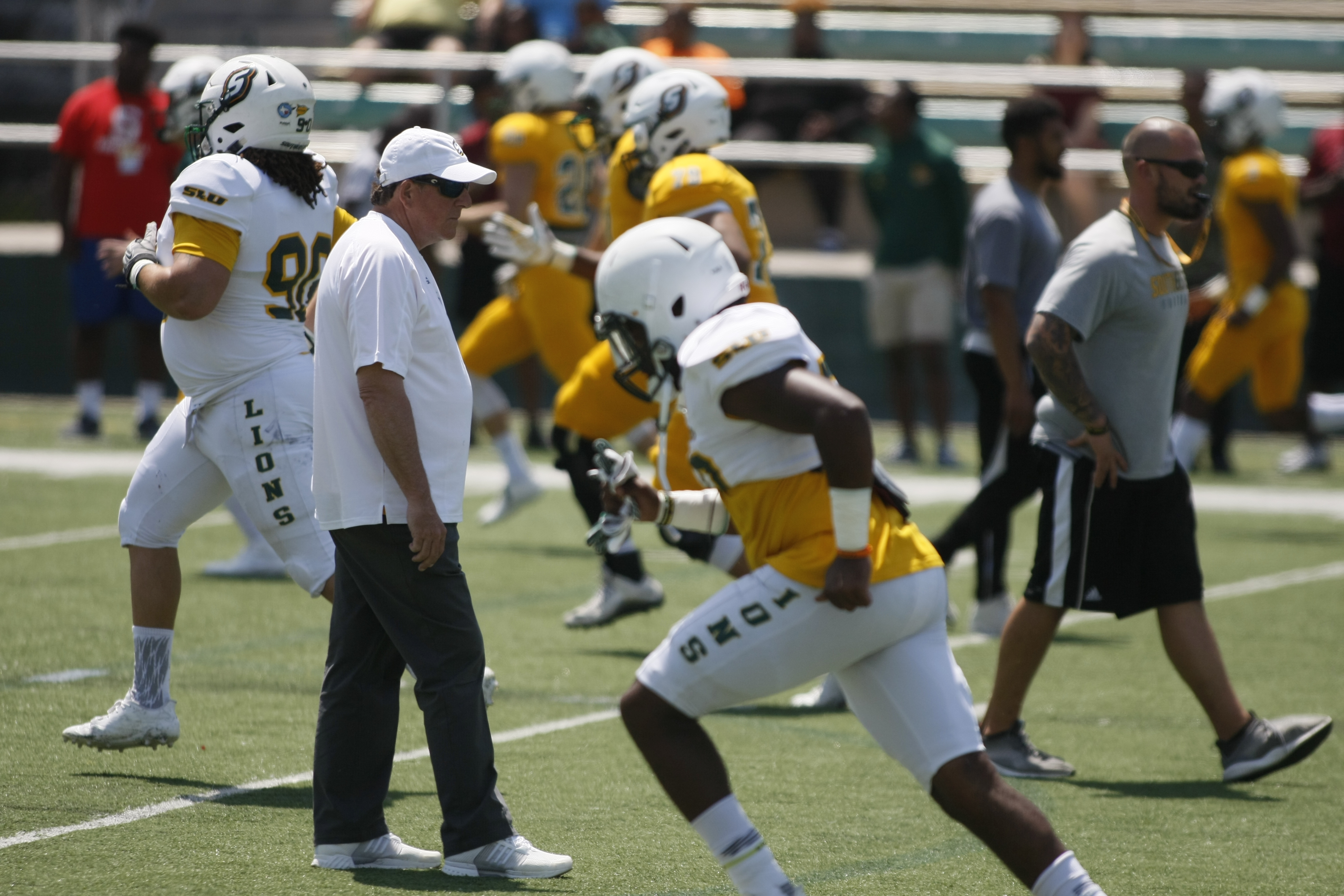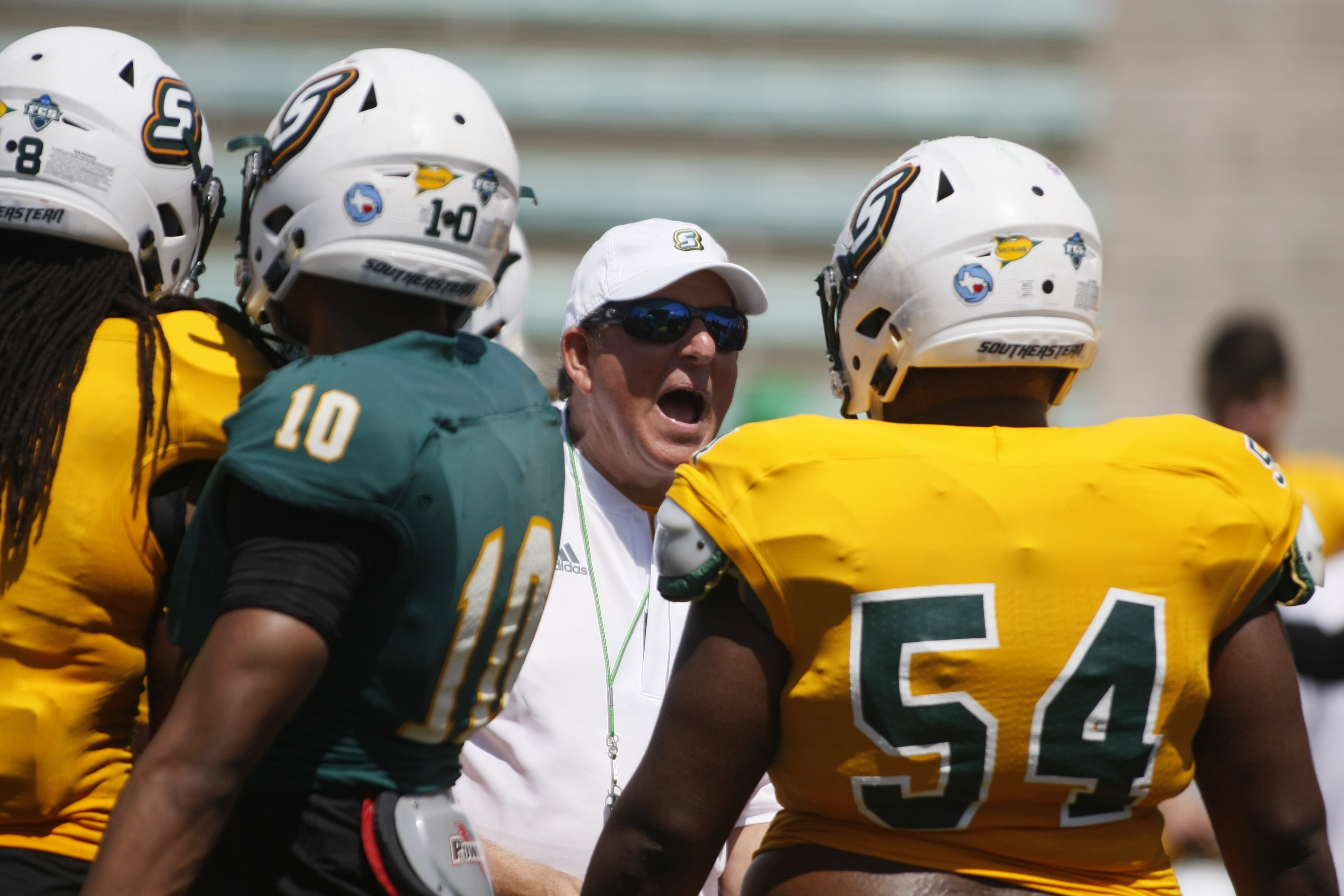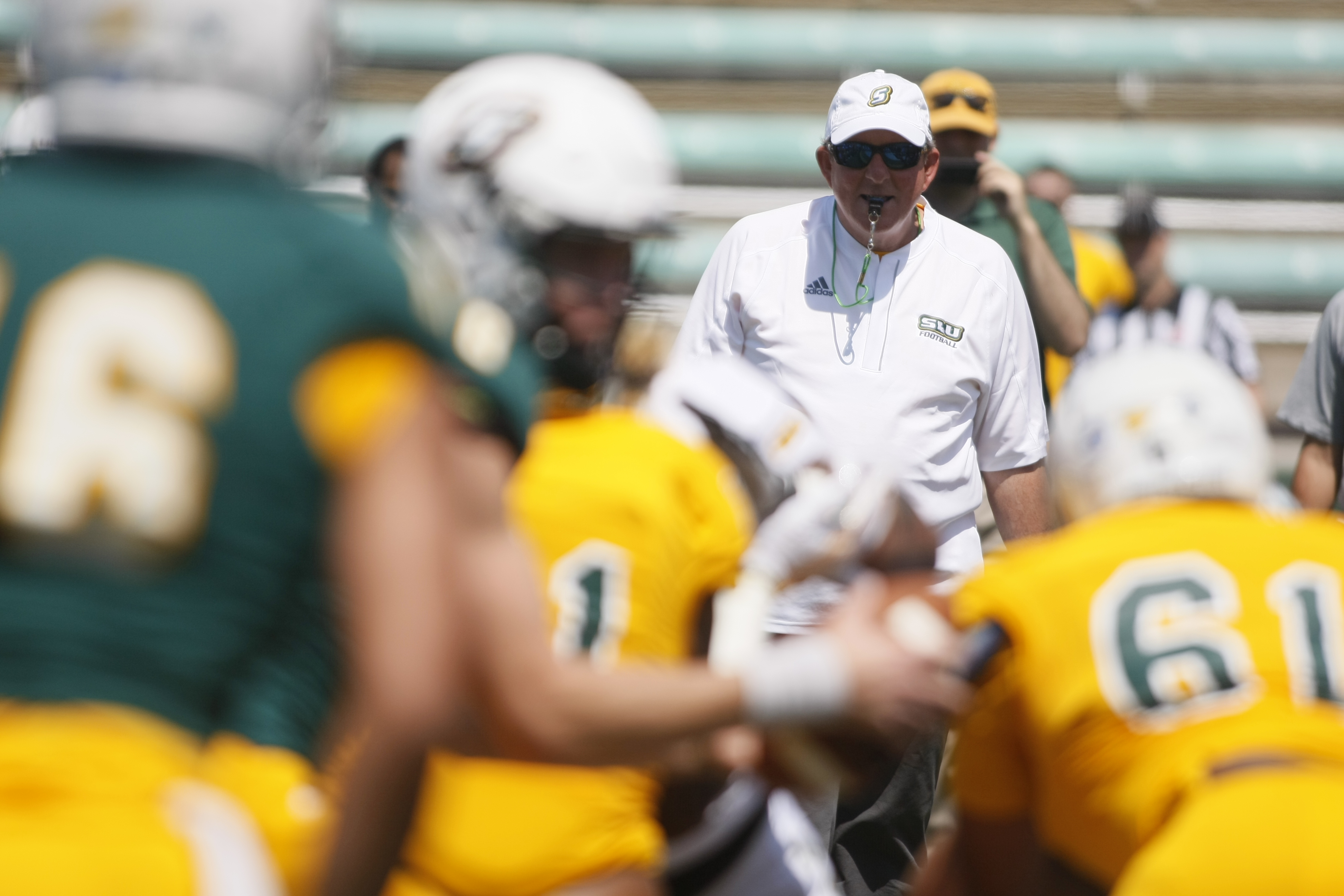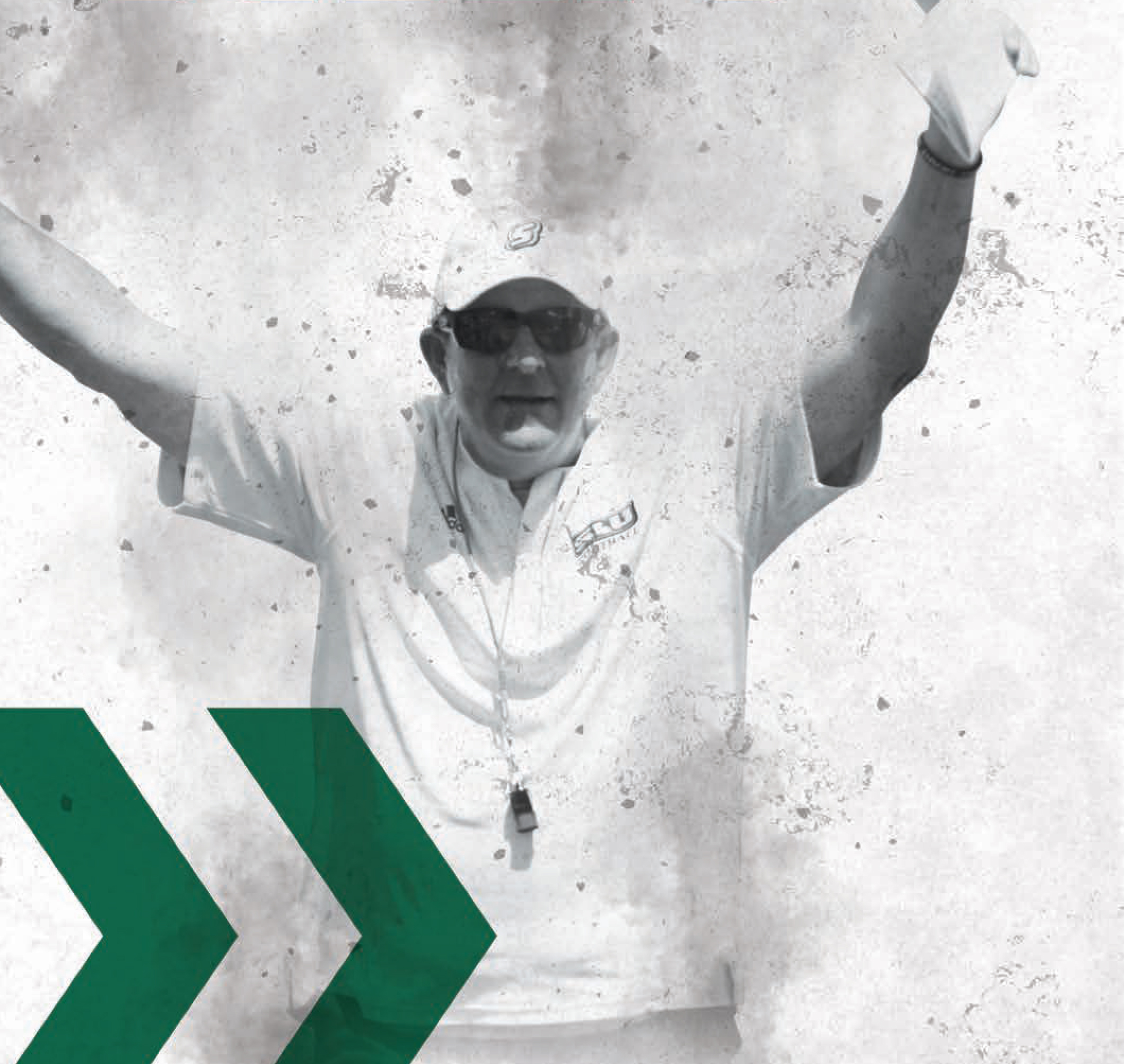Southeastern named Frank Scelfo the 16th head football coach in program history on January 30, 2018. Southeastern Magazine sat down with the 59-year-old Abbeville, Louisiana, native heading into his first season patrolling the lion sidelines to find out more about the man and his plans for SLU.

Q:
Your background as a student-athlete was as a baseball player (Scelfo starred on the diamond at ULM from 1978-81 and was named the school’s Athlete of the Year as a senior). How did you make the transition from being a baseball guy to a football guy?
A:
My dad coached football and baseball, so every fall I was at football practice with him as long as I can remember. That’s just what we did. We played football in the fall, basketball in the winter, and baseball in the spring. When I graduated high school, I signed a football scholarship with ULM (then Northeast Louisiana) with coach John David Crow and was planning on playing both football and baseball.
I decided to focus on baseball, because I thought I might have a chance to play at the next level. Even though I didn’t play football, my passion for the game never waned. Although I wasn’t on the team, Coach Crow allowed me to work with his staff as a student assistant. My first job was at Prairie View Academy in Bastrop and I was the football and baseball coach. I love both sports, but my opportunities came in football, so that’s the way I went.
Q:
How did your dad being a coach influence you as you were growing up?
A:
Everything I am came from my parents. I was one of eight kids, and all eight of us graduated college. They were doing something right to go eight for eight. We learned so many lessons growing up that we didn’t even realize we were even learning. I don’t coach for a living; a coach is just what I am. Even when I was watching my sons playing as they grew up, it’s hard to just watch as a fan. I’m always analyzing what I’m watching from a coach’s perspective, and I think I get that from my dad.
After a game that he won, my dad would always still see the issues his teams had. It took me becoming a coach myself to truly understand. Even when you win, there’s always room for improvement. On the flip side, he was never devastated by the losses. He knew there was always another chance to be better the next day.

Q:
Is there a moment during your career that you would consider your first big break?
A:
No. My dad told me when I first started, “Make every job your last one.” If other opportunities come and you want to take them, that’s fine. But if you treat the job you’re doing today like it’s your last, you’ll be sure to make it the best job you can. I just wanted to do the best I could at wherever I was at the time. I just want to coach.”
Q:
Besides your father, who were some of the coaches who influenced you during your career?
A:
Everyone I’ve worked with has had an impact on me. Frank Monica taught me a lot when I was coaching under him at Jesuit High School. Dickey Meeks at Chapel Hill High School along with Buddy Teevens, Tommy Bowden, and my brother Chris at Tulane were all people who taught me things that I use to this day.
I learned from Derek Dooley at Louisiana Tech and Mike Stoops at Arizona, and those are two guys who draw on a wealth of knowledge from a lot of different people. Gus Bradley at Jacksonville was a great influence. I took a lot of things from all of those guys.
Q:
How proud are you of the influence you’ve had on coaches and players you’ve worked with over the years?
A:
Making a difference in the lives of the players we coach is the most important aspect of coaching. If you’re just in for the numbers on the scoreboard or on a paycheck, you’re not going to be a coach very long. If we teach our players to do the right things, which they can carry with them for the rest of their lives, positive results are going to come on the field. I’ve talked to a lot of my old players, and it’s amazing the things that impacted them that I didn’t even realize would have an effect.”
Q:
Why Southeastern?
A:
This is home for me, and it’s great to come home after coaching all over the county. I developed an affinity for Southeastern when I used to come work the Manning Passing Academy and when we came here for training camp when I was at Tulane. The campus, the city, and the area are just all beautiful. My wife and I love the people here.
I’ve always looked at Southeastern and said, “That would be a great job.” I’ve always loved Hammond. When I interviewed for the job, it was exciting to see the growth throughout the University and the city. This was an easy call to come to Southeastern.
Q:
Where do you want to take the Lion Football program?
A:
Football-wise, I want to consistently be a force on the Football Championship Subdivision (FCS) level. Academically, we have to do a better job as a football program of stressing the importance for our student-athletes to get a college degree. We want our players to be able to contribute to society in a positive manner. And then hopefully down the line, they’ll think so highly of their time at Southeastern that they’re willing to give back to the program so we can continue to give student-athletes opportunities.
Everything we’re doing now is built for the long term. We want to set ourselves up for long-term success.
Q:
The three pillars of the Southeastern Athletics mission statement are excellence in competition, in the classroom, and in the community. Your program has adopted Child Advocacy Services’ Court-Appointed Special Advocates (CASA) as a charity this season. How important is being involved with CASA to you and your players?
A:
It gives the members of our program the realization of how much they can impact others’ lives. It’s a mutually beneficial relationship. Our players can be influenced by the kids they mentor, and that experience will be a great life lesson for our student-athletes. We can also show these kids that someone cares about them and they too have a chance to reach their goals.
We’re also hoping that more of our fans will consider being CASA volunteers. If we do our job, we’ll have a huge influence on the city of Hammond and Tangipahoa Parish through our partnership with CASA.

By Kemmler Chapple






